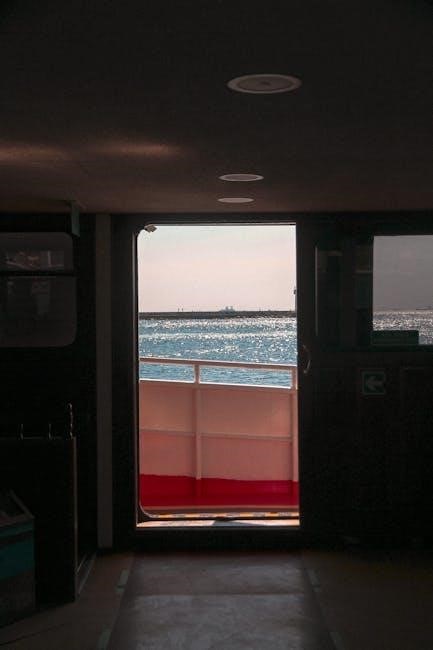
Robert Fagles was a renowned professor and translator, best known for his poetic translations of classical epics. His work on The Iliad, The Odyssey, and The Aeneid brought ancient texts to modern readers with lyrical clarity and depth. Fagles’ translations are celebrated for their bold, flowing style, making complex narratives accessible while preserving their original grandeur. His contributions to classical scholarship and literature remain unparalleled, earning him widespread acclaim and a lasting legacy in the field of translation.
Background and Contributions
Robert Fagles, a Princeton University professor emeritus, was a distinguished classical scholar and translator. Born with a deep passion for ancient literature, he dedicated his career to making classical epics accessible to modern readers. Fagles’ translations of Homer’s The Iliad and The Odyssey, as well as Virgil’s The Aeneid, are celebrated for their lyrical prose and faithfulness to the original texts. His work bridges the gap between ancient Greek and Roman literature and contemporary audiences, ensuring these timeless stories remain relevant. Fagles’ approach to translation emphasized both the poetic beauty and the emotional depth of the originals, earning him critical acclaim and a wide readership. His contributions to classical scholarship have left a lasting impact, making him one of the most respected translators of his generation.

The Odyssey PDF
Robert Fagles’ translation of The Odyssey is widely available in PDF format, published by Penguin Classics. The Deluxe Edition, released in 1997, features Fagles’ lyrical prose and Bernard Knox’s insightful introduction. The PDF can be accessed through online archives like PDFy or purchased from major bookstores, offering readers a convenient way to explore Homer’s epic tale digitally.
Publication Details and Availability
Robert Fagles’ translation of The Odyssey was published in 1997 by Penguin Books as part of their Penguin Classics Deluxe Edition. The ISBN for this edition is 0-670-82162-9, making it easily identifiable for scholars and readers. This translation is widely regarded for its lyrical prose and faithfulness to Homer’s original text. Bernard Knox, a renowned classicist, contributed the introduction and notes, enhancing the reader’s understanding of the epic’s historical and cultural context.

The PDF version of Fagles’ The Odyssey is readily available for download through various online platforms, including academic databases and digital archives like PDFy. Additionally, it can be purchased in paperback or eBook formats from major bookstores such as Amazon or Barnes & Noble. This accessibility ensures that both students and enthusiasts can engage with Fagles’ masterful interpretation of Homer’s timeless tale. The publication’s widespread availability reflects its enduring popularity and critical acclaim in classical literature circles.
Themes and Structure
Robert Fagles’ The Odyssey explores themes of perseverance, cunning, and divine fate, set against a non-linear narrative rich with flashbacks and divine interventions. Fagles’ translation captures the epic’s timeless appeal through lyrical prose, enhancing its accessibility and emotional depth.
Major Themes and Book Structure
Robert Fagles’ translation of The Odyssey delves into timeless themes such as perseverance, cunning, and divine fate, all set against the backdrop of Odysseus’ arduous journey home after the Trojan War. The epic is structured into 24 books, each focusing on key events and moral dilemmas. Fagles masterfully captures the non-linear narrative, weaving flashbacks and divine interventions seamlessly. Central themes include the struggle between fate and free will, the importance of loyalty, and the human condition’s resilience in the face of adversity.
The structure mirrors Odysseus’ emotional and physical odyssey, with early books introducing his son Telemachus’ quest for news of his father. Later, Odysseus’ own voice emerges, recounting his trials with the Sirens, Cyclops, and other mythical beings. Fagles’ prose enhances the poetic depth of these encounters, emphasizing Odysseus’ ingenuity and humanity. The final books reunite Odysseus with his wife, Penelope, symbolizing the triumph of loyalty and order over chaos. This balance of action and introspection ensures the epic remains both gripping and thought-provoking, resonating with readers across generations.
Language and Style
Robert Fagles’ translation of The Odyssey is celebrated for its lyrical and accessible language, which bridges the gap between ancient Greek poetry and modern readers. Fagles employs a fluid, natural prose style that preserves the epic’s grandeur while making it approachable. His use of English avoids archaic language, ensuring the narrative remains vivid and engaging without sacrificing the original’s poetic essence.
Fagles’ style is characterized by its rhythmic cadence, which mirrors the original dactylic hexameter of Homer’s text. This creates a musical quality that enhances the storytelling experience. His translations often feature evocative imagery and precise word choices, capturing the emotional depth of the characters and the vivid descriptions of mythical landscapes. Additionally, Fagles’ work incorporates subtle nuances in dialogue, reflecting the distinct voices of Odysseus, Athena, and other characters. This blend of poetic grace and readability has made his translation a favorite among scholars and general readers alike, ensuring The Odyssey remains a timeless literary masterpiece.
Reception and Impact
Robert Fagles’ translation of The Odyssey has received widespread critical acclaim for its masterful blend of fidelity to the original text and readability. Scholars and readers alike praise his ability to capture the epic’s poetic grandeur while making it accessible to modern audiences. Fagles’ work has been instrumental in popularizing classical literature, ensuring that The Odyssey remains a cornerstone of educational curricula and literary studies.
The translation’s impact extends beyond academia, influencing contemporary authors and artists who draw inspiration from Homer’s timeless themes. Fagles’ version has also been widely adopted in classrooms, helping to introduce generations of students to the richness of ancient Greek literature. His work has set a new standard for classical translations, demonstrating that ancient texts can retain their power and relevance in the modern world. Through his translation, Fagles has not only preserved Homer’s legacy but also expanded the reach of The Odyssey, making it a vibrant part of global cultural heritage.
Study Resources
For students and scholars studying Robert Fagles’ translation of The Odyssey, numerous resources are available to enhance understanding and analysis. The PDF version of Fagles’ translation, widely accessible online, includes introductions and notes by Bernard Knox, providing historical and literary context. Additionally, structured study guides and course materials, such as those from the History Odyssey Ancient program, offer detailed lesson plans and reading schedules to facilitate a deeper engagement with the text.

Supplementary resources include critical essays, lectures, and online forums where readers can discuss interpretations and themes. Fagles’ translation is often paired with multimedia tools, such as audio recordings and video analyses, to help learners appreciate the epic’s poetic and narrative nuances. These resources not only aid in academic study but also make The Odyssey more accessible to a broader audience, ensuring its relevance in modern educational contexts.


Comparisons with Other Translations
Robert Fagles’ translation of The Odyssey is often compared to other notable versions, such as Richmond Lattimore’s literal rendering and Emily Wilson’s feminist-oriented translation. Fagles’ work is celebrated for its poetic flow and accessibility, balancing fidelity to Homer’s original text with a modern, lyrical voice. Unlike Lattimore’s more literal approach, which prioritizes academic precision, Fagles’ translation captures the epic’s emotional depth and narrative rhythm, making it a favorite among general readers and scholars alike.
Emily Wilson’s 2017 translation, the first by a woman, offers a fresh perspective, emphasizing clarity and inclusivity. While Wilson’s version is praised for its precision and contemporary language, Fagles’ translation remains distinguished by its poetic elegance and readability. Similarly, Martin Hammond’s prosaic translation lacks the lyrical quality of Fagles’ work. Overall, Fagles’ Odyssey stands out for its ability to bridge the gap between scholarly integrity and artistic expression, ensuring its enduring popularity in both academic and literary circles.

Legacy of Robert Fagles
Robert Fagles’ legacy as a translator and scholar is profound, particularly through his work on classical epics like The Odyssey; His translations, known for their poetic elegance and accessibility, have made ancient texts resonate with modern readers. Fagles’ ability to balance scholarly precision with lyrical expression ensured that Homer’s Odyssey reached a broad audience, bridging the gap between academia and general readership. His work not only preserved the epic’s timeless themes but also reinvigorated its relevance for contemporary literature. Fagles’ contributions to classical studies and translation are celebrated, earning him a reputation as one of the most esteemed translators of his generation. His translations remain widely read and studied, ensuring his enduring influence on both literary and academic circles.
Robert Fagles’ translation of The Odyssey stands as a testament to his mastery of classical literature and his ability to connect ancient texts with modern readers. His work not only preserved the epic’s timeless themes of perseverance, cunning, and humanity but also brought Homer’s poetry to life in a way that resonates across generations. Fagles’ legacy lies in his unique ability to balance scholarly integrity with accessible language, ensuring that The Odyssey remains a cornerstone of literary study and appreciation. Through his translations, he bridged the gap between the ancient and the modern, allowing readers to experience the epic journey of Odysseus with fresh eyes. Fagles’ contributions to classical scholarship and literature are immeasurable, and his translations continue to inspire new interpretations and adaptations of Homer’s work. His enduring impact ensures that The Odyssey remains a vital part of our cultural and intellectual heritage.
